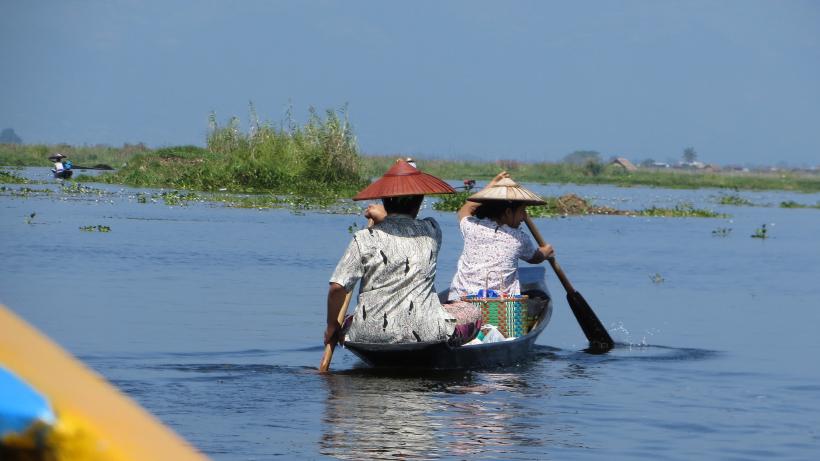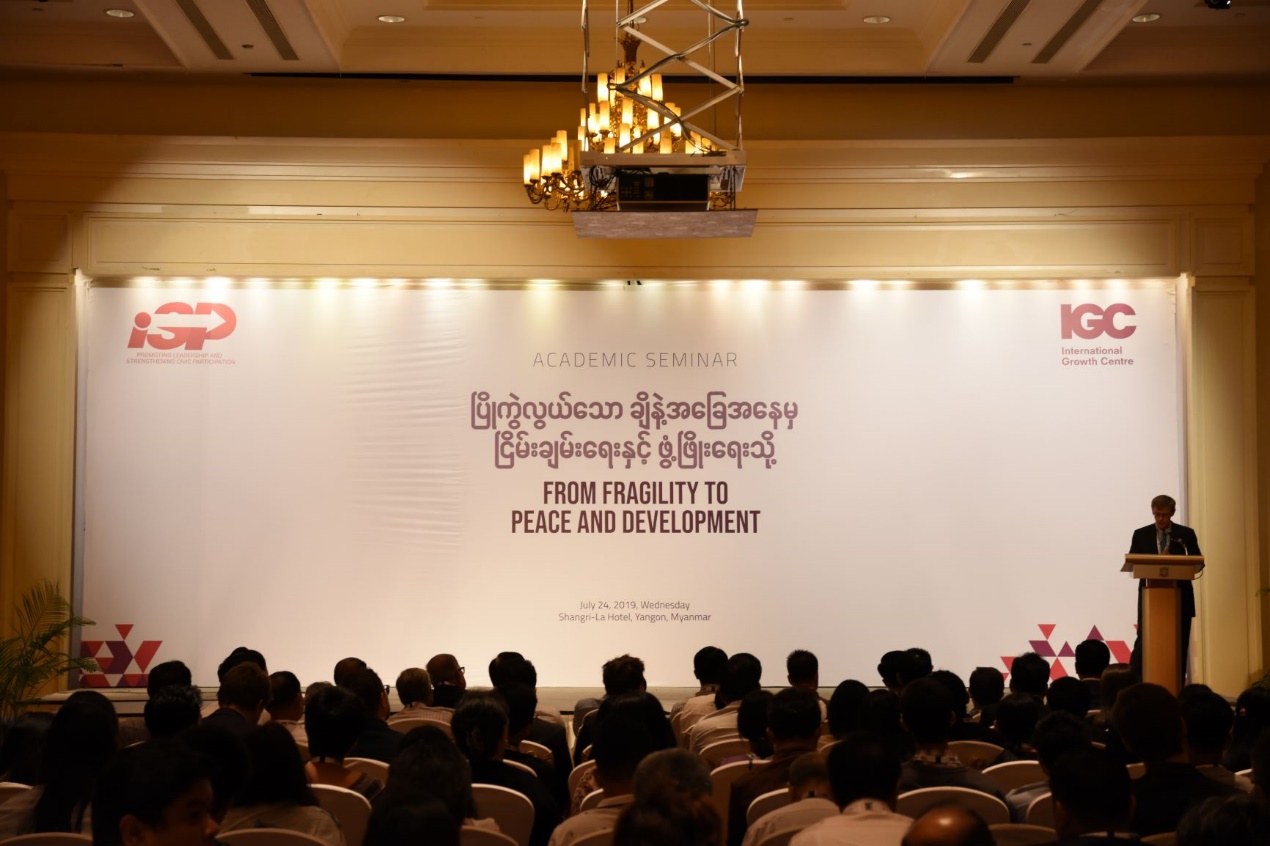
Escaping the fragility trap: Lessons from Myanmar
State fragility imperils people’s lives and prevents long-run economic prosperity. In July 2019, the IGC co-hosted a large academic conference in Yangon, Myanmar on this critical issue. Several important lessons emerged for states struggling with fragility.
State fragility, the situation where government institutions have weak capacity or low legitimacy, affects many of the world’s poorest regions. It is often accompanied by widespread conflict and corruption. Myanmar – an ethnically diverse country that, since 1948, has been facing what is now the world’s longest civil conflict covering large swathes of its territory and people – continues to struggle with state fragility. In July 2019, the IGC and the Myanmar-based Institute for Strategy and Policy, held a large academic seminar bringing together stakeholders from government, ethnic armed organisations, civil society, and academia, to discuss how to tackle some of the key underlying issues of state fragility in the country. While the Myanmar situation has some particularities, including the country’s decades-long isolation and the military regime’s tight grip on power, several themes emerged which are applicable to other states facing fragility.

IGC-ISP Seminar on State Fragility in Yangon, Myanmar (July 24, 2019)
Acting fast and slow
Instability is often chronic; Myanmar has been mired in civil conflict for over 70 years. Yet opportunities to establish peace do come up, and these pivotal moments provide unique opportunities for decisive action, be it by government, the private sector, the military or civil society, and ideally a combination of these. In Myanmar, the democratic transition begun in 2011 is one such pivotal moment. Yet at the same time, leaders should remember that state consolidation is a long and gradual process, with the pace of incremental reform dictated by local context.
Yemen’s tragic recent history provides a cautionary tale. The Hadi administration’s attempts to quickly push through economic and political reforms unpopular with the Houthis helped plunge the country into a civil war that has ravaged the country since 2015 (Wintour, 2019). The challenge is to strike a balance between seizing a rare opportunity for progress and matching the pace of change with the country’s capacity to absorb it. Communicating a clear unifying vision and a timeline for reform can help manage citizens’ expectations. If in doubt, policymakers should under-promise and over-deliver.
We are all in this together
Western nation-states have been consolidated around a shared ethnic identity. Ethnically fragmented states such as Myanmar need to find alternative sources of legitimacy to avoid break-up, as in the cases of the Soviet Union and Yugoslavia. A shared vision for the country can help unite citizens across ethnic lines and secure the validity of the state in their eyes.
A first step is to articulate a common agenda for the future: what does the future state we are building look like, what role will it play in our lives, and how will we interact with it? However, “cheap talk” is not enough; tangible action is also needed. For example, a radical anti-discrimination agenda to eliminate bias against any minority groups, could form the backbone of cohesive vision for the country. Concretely, implementing a meritocratic recruiting system for the state bureaucracy, such as the competitive examination in imperial China, can give all groups of society a stake in the running of the country. Overall, costly signals are the most valuable in strengthening a sense of cohesion. As Singapore’s Lee Kwan Yew once said, “Start with putting three of your friends to jail. You definitely know what for, and people will believe you” (Kuan Yew, 2000). Hard decisions can send a powerful message of commitment to reform.
It’s the economy, stupid
Although state fragility is often framed as a political and social issue, it often has a critical economic dimension. Existing economic incentives can directly threaten the stability of the state and create a negative feedback loop, where the absence of state authority fosters those same economic incentives. Myanmar’s large illicit markets, particularly for drugs and minerals in conflict-affected ethnic minority regions, provide an example of this. Under the auspices of local militias backed by the military, Myanmar has become a major global producer of heroin and methamphetamine (Frontier, 2019). The strong economic motivation for growing, processing, and shipping drugs makes state fragility – the opportunity to conduct these activities unimpeded – profitable. One way to directly tackle the economic factors behind fragility is to stimulate job creation in troubled regions to change the economic calculus for locals and introduce a stake for them in the national political system. Crop-substitution schemes can play this role, though the Colombian government’s example shows that implementation can be tricky (Palau, 2018).
Breaking this vicious cycle requires concerted action on multiple fronts, including the economic and political. The political economy of fragile states presents a “second-best” problem: addressing a single structural weakness of the system can actually further undermine its stability. For example, improvements in Myanmar’s road infrastructure have fuelled the illicit drug trade by easing transportation for suppliers (Frontier, 2019). This means that policymakers need to identify and tackle the root causes of fragility simultaneously. It is a daunting challenge, but the peace and prosperity of the world’s most vulnerable is at stake.
References
Frontier (2019), “Shan State’s vast drug trade dominates its economy, says ICG”, https://frontiermyanmar.net/en/shan-states-vast-drug-trade-dominates-its-economy-says-icg
Kuan Yew, L (2000), From Third World to First: The Singapore Story: 1965-2000, Harper.
Palau, M (2018), “Swapping Cocaine for Peace”, Foreign Policy, https://foreignpolicy.com/2018/12/28/swapping-cocaine-for-peace-colombia-drugs-farc/
Wintour, P (2019), “Yemen civil war: The conflict explained”, The Guardian, https://www.theguardian.com/world/2019/jun/20/yemen-civil-war-the-conflict-explained

